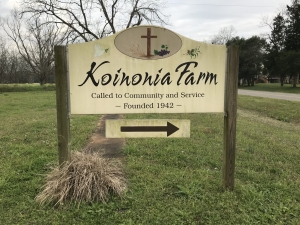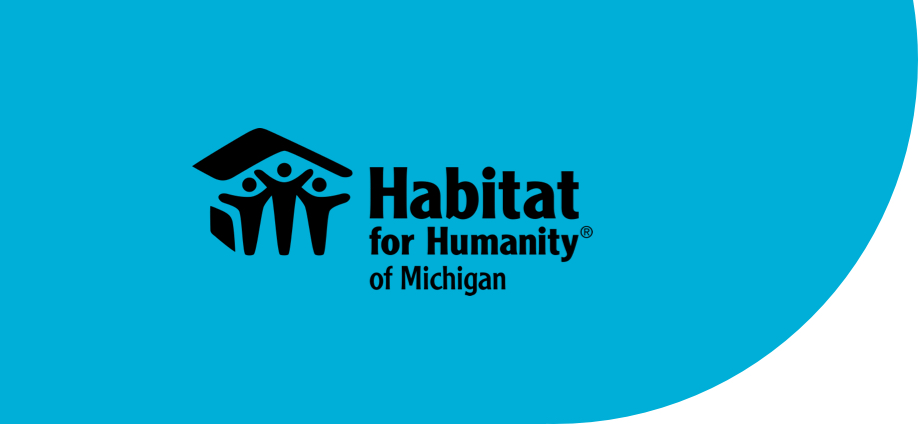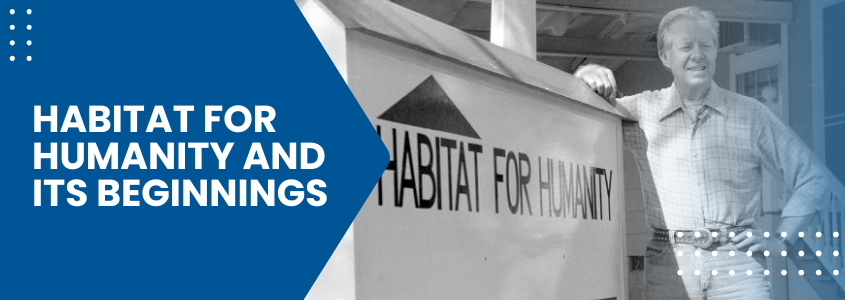Koinonia Farm: The Roots of Habitat for Humanity and a Legacy of Racial Justice
A lot has been written about Habitat for Humanity and its beginnings, including its founding by Millard and Linda Fuller in 1976, its global expansion, and its impact on affordable housing worldwide. To truly grasp Habitat’s commitment to equality and inclusivity, one must first explore the values and history of the community from which it emerged: Koinonia Farm.

In 1942, amidst the pervasive racial segregation of the American South, Clarence and Florence Jordan, along with Martin and Mabel England, founded Koinonia Farm near Americus, Georgia. Envisioned as a “demonstration plot for the Kingdom of God,” the farm was established on principles of racial equality, nonviolence, and communal living. The founders aspired to create a community where individuals of all races could live and work together harmoniously, reflecting the early Christian church’s ideals.
Challenges and Resistance
The name “Koinonia” derives from the Greek word for “fellowship” or “communion,” signifying the deep bond the community sought to cultivate among its members. This commitment to interracial fellowship was revolutionary during an era when Jim Crow laws enforced racial segregation. As the Civil Rights Movement gained momentum in the 1950s, Koinonia Farm’s inclusive practices attracted hostility from local segregationists. The community faced economic boycotts, drive-by shootings, and bombings. Despite these adversities, the members of Koinonia remained steadfast, responding with nonviolent resistance and unwavering faith.
Clarence Jordan’s Influence
Clarence Jordan, a man of profound faith and intellect, held a Ph.D. in New Testament Greek, which deeply influenced Koinonia Farm’s mission. His theological background shaped the farm’s commitment to radical equality, nonviolence, and communal living, grounding its principles in the teachings of Jesus as he interpreted them in a modern Southern context. He utilized his scholarly background to author the “Cotton Patch” series, a colloquial translation of New Testament texts set in a contemporary Southern context. This work aimed to make biblical teachings more accessible and relevant to the modern reader, emphasizing themes of justice, equality, and love. Jordan’s writings provided spiritual sustenance to the community and challenged prevailing social norms.
The Birth of Habitat for Humanity
In the late 1960s, Millard and Linda Fuller joined Koinonia Farm. Inspired by the community’s mission, they collaborated with Jordan to develop the Partnership Housing program. This initiative focused on building affordable homes in partnership with low-income families, utilizing volunteer labor and offering no-interest loans. The success of this program laid the foundation for Habitat for Humanity, established in 1976. Today, Habitat for Humanity has expanded globally, constructing homes for countless families in need.
Koinonia’s Legacy and Impact
As we observe Black History Month, it’s essential to recognize Koinonia Farm’s significant role in advancing racial integration and social justice, a legacy that continues to inform Habitat for Humanity’s ongoing commitment to diversity, inclusion, and equitable housing solutions worldwide. The community’s unwavering commitment to equality and human dignity contributed to the broader Civil Rights Movement, challenging systemic racism and inspiring future initiatives.
Koinonia Farm Today
In the present day, Koinonia Farm continues to thrive as an intentional Christian community. It remains dedicated to its founding principles, welcoming visitors, interns, and those seeking spiritual renewal. The farm engages in various ministries, including sustainable agriculture, hospitality, and social justice initiatives. By embodying its core values, Koinonia Farm serves as a living testament to the enduring power of faith-driven community and its capacity to effect positive change in the world. Today, the farm continues its legacy through initiatives like the Clarence Jordan Symposium, organic farming projects, and its internship program, which educates and inspires the next generation of leaders in social justice and sustainable living.
Further Reading
For those interested in delving deeper into the philosophy and experiences of Koinonia Farm, Clarence Jordan’s “Cotton Patch” series offers profound insights into the community’s mission and the application of biblical teachings in the quest for social justice.
Read more about the history of Koinonia Farm and Habitat for Humanity:
Koinonia Farm: A Brief History
New Georgia Encyclopedia: Koinonia Farm
Facing Down the KKK: The Story of Koinonia Farm and Christian Hospitality
Exploring Koinonia Farm, a community for over 70 years
Love never quits. The life and ministry of Clarence Jordan
Koinonia Farm’s legacy is a powerful reminder of the impact that a small, dedicated community can have in challenging injustice and fostering reconciliation. To honor this legacy, consider visiting Koinonia Farm, supporting its initiatives, or learning more about its ongoing work in social justice and sustainable living. Its story continues to inspire individuals and organizations committed to building a more equitable and compassionate society.


